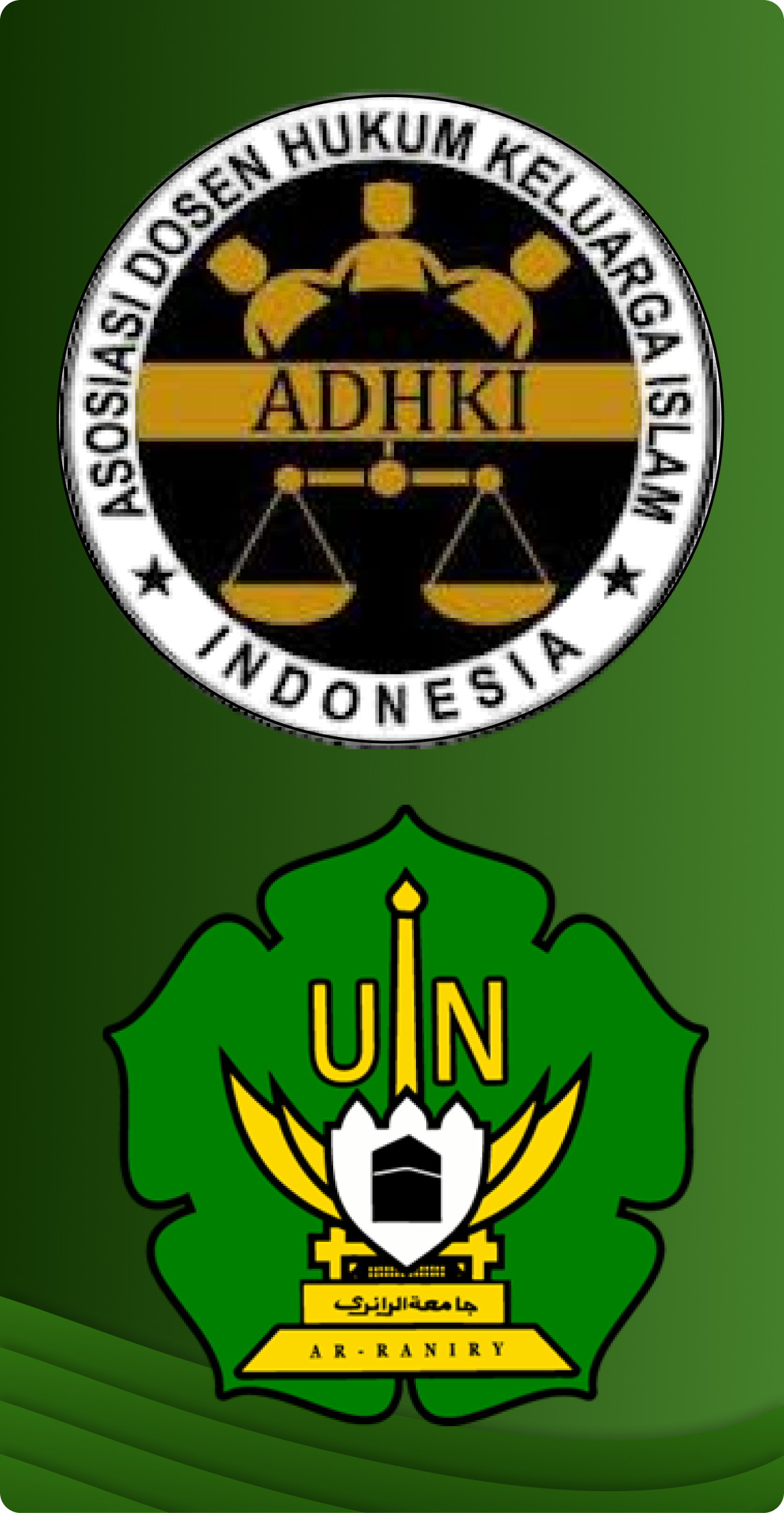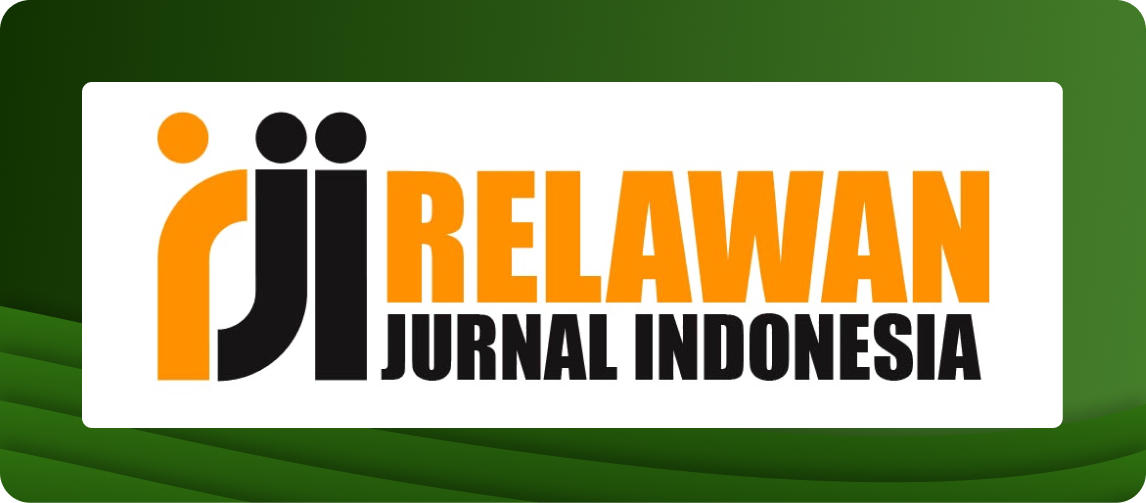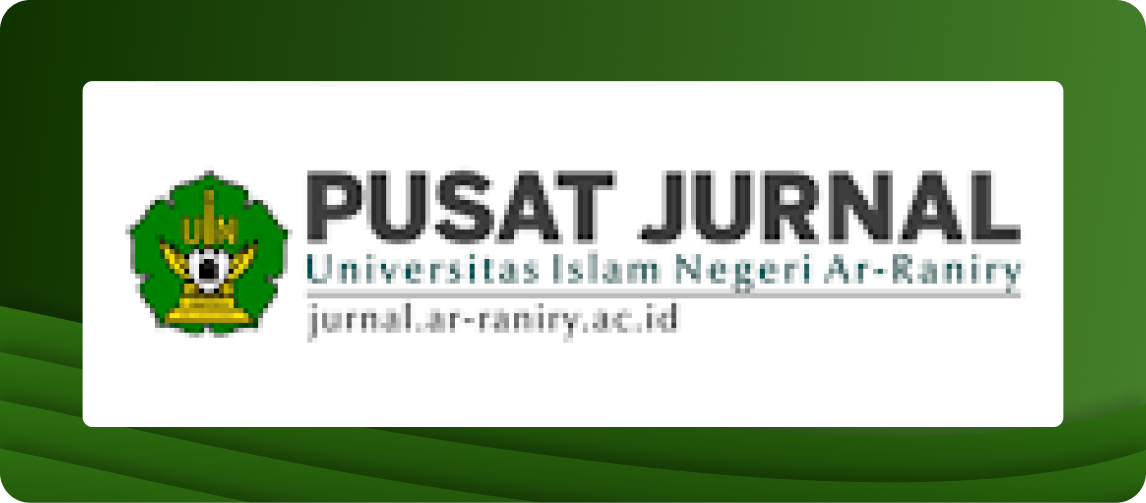‘Urf and Its Role in The Development of Fiqh: Comparative Study of Famliy Law Between Egypt and Indonesia
DOI:
https://doi.org/10.22373/ujhk.v7i1.23968Keywords:
‘Urf, role, development, fiqh, Egypt, IndonesiaAbstract
This research discusses the dynamics of changes in Islamic family law which is strongly influenced by ‘urf as a dynamic and elastic enrichment. The research question is how is the absorption of ‘urf in Egypt and Indonesia in fiqh, what are the rules for its application and contextualization in the development of Fiqh in Indonesia. Methodologically, this type of research is qualitative with documentation, interviews and observation as technical data collection. The data will be analyzed using the ushul fiqh and Sociological approaches. The results of the research are first, the absorption of ‘urf in Egypt and Indonesia is very strong, especially in the field of Islamic Family Law. In determining the dowry, each region has different customs and considerations, both in Indonesia and Egypt. The difference is in terms of joint assets, the wife in Egyptian 'urf is guaranteed to have assets from three sources; grants, gifts from parents and husbands. Meanwhile in Indonesia, joint assets are considered based on their contribution to the family business after marriage, which varies greatly according to prevailing customs. This difference is considered absorbing 'urf in Fiqh as one of the interpreters of nass are in the form of; ‘urf is dependent, dynamic, accommodates values and norms, contributes to the development of Fiqh and fulfills the elements of maqasid sharia. As a finding, in the Contextualization in the Development of Fiqh, ‘urfcontributes to tajdid (renewal) which places more emphasis on mutaghayyirat of the family law. There is no change in Fiqh without a change in ‘urf.References
Journals and Books
Abdullah, M. Amin, Islamic Studiess di Perguruan Tinggi: Pendekatan Integratif Interkonektif, Yogyakarta: Pustaka Pelajar, 2012.
Abubakar, Ali, et.al., “The Postponement of the Implementation of Inheritance Distribution in The Seunuddon Community, North Aceh in The Lens of ‘Urf Theory and Legal Pluralism. El Usrah 6, No. 2 (2023). http://dx.doi.org/10.22373/ujhk.v6i2.10207
Ahyar, Khoirul. Qaul Qodim wa Qaul Jadid Imam Syafi’i (Kemunculan & Refleksinya Di Indonesia),” Nizham: Jurnal Studi Keislaman, 3, No. 1 (2017).
Aini, Laily Nur, “Economic valuation of Kampung Rawa tourism development by CVM approach in Bejalen Village, Semarang Regency,” Indonesian Journal of Islamic Economics Research 4, No. 1 (2022). https://doi.org/10.18326/ijier.v4i1.8376
Al-Nasafi. al-Mustasfa. Beirut: Dar al-Kutub, n.y.
Al-Syahud. Ali ibn Nayif. “Al-Khulasah fi fiqh al-Aqalliyat”. Maktabah al-Syamilah, Juz 9.
Asriati. “Pembaruan Hukum Islam dalam Terapan Dan Perundang-undangan Di Indonesia,” Jurnal Hukum Diktum 10, No. 1 (2012).
Azhar Azhar, “Islamic Law Reform in Indonesia from the Perspective of Maqāṣid Al-Sharī'ah: Kerinci’s Intellectual Views,” Samarah 8, No. 2 (2024). DOI: http://dx.doi.org/10.22373/sjhk.v8i2.15051.
Azwar, Zainal, et, al. “Child Filiation and Its Implications on Maintenance and Inheritance Rights: A Comparative Study of Regulations and Judicial Practices in Indonesia, Malaysia, and Turkey,” Journal of Islamic Law 5, No. 1, (2024). https://doi.org/10.24260/jil.v5i1.2326.
Edwar, Ahmad. “Indonesian Jurisprudence: Islamic Law Transformation In Law System of Indonesia”. Kordinat 19, No. 2 (2020). DOI: 10.15408/kordinat.v19i2.18994.
Elfia, et, al, “Distribution of Heritage Association of Harta Pusaka TinggiAnd Harta Pusaka Rendahin Padang Pariaman,” Al-Ahkam: Jurnal Pemikiran Hukum Islam, Vol 30 No 1 (2020). http://dx.doi.org/10.21580/ahkam.2020.30.1.5273.
Elmi Achmad Slamat Pelu1, Ibnu and Jefry Tarantang, Fatwa Majelis Ulama Indonesia Sebagai Solusi Permasalahan Umat Islam di Indonesia, Al-Manāhij: Jurnal Kajian Hukum Islam 14 No. 2 (2020). https://doi.org/10.24090/mnh.v14i2.3927.
Fadil, et.al., “Fulfillment of Women's Rights After Divorce: Dynamics and Transformation in the Legal Journey,” De Jure, 16, no. 1 (2024). https://doi.org/10.18860/j-fsh.v16i1.25713
Faiz, Abd. Aziz. Dasar-dasar dan Pokok Pikiran Sosiologi Agama. Yogyakarta: SUKA Press, 2021.
Fanani, Muhyar Ilmu Ushul Fiqh di Mata Filsafat Ilmu. Semarang: Walisongo Press, 2009.
Farhati, Putri, et.al., “Adat Tunangan di Kabupaten Bireun”. Jurnal JIM. 5, No. 3 (2020).
Fauzi, “Shuwar al-Hadhânah ba ‘da al-Thalâq fi Aceh al-Wusthâ,” Studia Islamika, 24, No. 1 (2017). https://doi.org/https://doi.org/10.15408/sdi.v24i1.4189
Fauzi. The Concept of Patah Titi: the Problem of Inheritance and Its Solution in Aceh Tengah. Studia Islamika, 26, No. 1 (2019). https://doi.org/https://doi.org/10.15408/sdi.v26i1.6529.
Fithrotin, Khusnul Muttaqin and Najihah Abd Wahid, “The Concept of Wasilah In The Qur’an: Analysis of Tafsīr Maqāsid i’s of Qs. Al-Māidah [5]: 35 And Qs. Al-Isrā’ [17]: 57. Mushaf: Jurnal Tafsir Berwawasan Keindonesiaan, 4, No. 1 (2023). doi: 10.33650/mushaf. v4i1.6148
Hamdi, Syaibatul. “Eksistensi Peran Majelis Adat Aceh dalam Mensosialisasikan Nilai-nilai Pendidikan Islam di Wilayat Barat-Selatan Aceh,” Ar-Raniry. 5, No. 1 (2018).
Hidayat, T., et.al., “Jeulame in Marriage in Banda Aceh: Looking for a Common Thread between Culture and Sharia,” Al-Risalah 20, No. 1 (2020). https://doi.org/10.30631/al-risalah.v20i1.563
Hidayatullah, Muhammad Syarif. “Formulasi Rechtsvinding Dengan Penalaran Analogis Dalam Epistemologi Hukum Islam (Telaah Metodologis Qiyas Sebagai Ra’y Terhadap Mashâdir Al-Ahkâm Asy-Syar’iyyah)”. Jurnal Ilmiah Syari‘ah 19, No. 2 (2020). DOI: http://dx.doi.org/10.31958/juris.v19i2.2490
Ibn Manzhur. Lisan al-Arab. Beirut: Dar Ihya Turats al- ‘Arabi, t.th. Juz IX.
Jumarim, et. al, “The Interplay of Fiqh, Adat, and State Marriage Law: Shaping Legal Consciousness of Sasak Women, Al-Ihkam: Jurnal Hukum dan Pranata Sosial, 19, No. 1 (2024). https://doi.org/10.19105/al-lhkam.v19i1.10522.
Kamil Rizani, Akhmad and Ahmad Dakhoir, “Musyawarah Sebagai Alternatif Penyelesaian Sengketa Waris Beda Agama: Evidence Based Solution From Indonesia,” El-Mashlahah 10, No. 2, (2020).
Khallaf, Abd Wahhab. ‘Ilm Usul Fiqh. Mesir: Maktabah al-Da’wah, t.th.
Khoiroh, Muflikhatul and Abd Syakur, “The flexibility of Islamic law in the Ganjur tradition in Lamongan, Indonesia,” Ijtihad: Jurnal Wacana Hukum Islam dan Kemanusiaan 23, No. 2 (2023). doi : 10.18326/ijtihad.v23i2.139-159.
Madkur, Muhammad Salam. al-Madkhaf fi al-FIqh al-Islami. Beirut: Dar al-Kitab al-Hadits, 2005.
Muhammad, Hanifah Salma, “Analisis Yuridis Pembagian Harta Gono Gini Berdasarkan Kontribusi Suami Istri Selama Perkawinan, Jurnal Restorasi Hukum 5, No. 2 (2022). ttps://doi.org/10.14421/jrh.v5i2.2354.
Mukhtasar and Angga Syahputra. “Optimizing The Mawah Concept for The Economy of The Aceh Community,” Iqtishoduna. 9, No. 2 (2020). DOI:10.36835/iqtishoduna.v9i2.558.
Mutawali, Muhammad, “The Dialectics of Customary Law and Islamic Law: An Experience from Dou Donggo Customs of Bima, Indonesia,” AHKAM 21, No. 1 (2021).
Al-Qahtani, Salih ibn Muhammad ibn Hasan Alu ‘Umayr al-Asmari. Majmu’ah al-Fawaid al-Bahiyyah ‘ala Manzhumat al-Qawa’id al-Fiqhiyyah. Saudi: Dar al-Sumay’i, 2000.
R Labone M. S. (2020). Pemberian Wasiat Wajibah Dalam Perspektif Hukum Islam (Studi Kasus Putusan Mahkamah Agung Nomor: 16 K/Ag/2010). Tadulako Master Law Journal 4, No. 1 https://doi.org/10.22487/tmlj.v4i1.193.
Ramli, Misran, et.al., “Custom, and Islamic Law in Aceh: Minor Dispute Resolution in the Perspective of Legal Pluralism, Samarah 8, 2), (2024). http://dx.doi.org/10.22373/sjhk.v8i2.15924
Rochman, M. Ibnu. Hukum Islam dalam Persepektif Filsafat. Yogyakarta: Philosophy Press, 2001.
Saleh. Fauzi, The Convergence of ‘Âdat And Islamic Law: The Practice of Gala in Aceh, Jurnal Miqot 44, No. 1 2020. https://doi.org/http://dx.doi.org/10.30821/miqot.v44i1.705
Somawinata, Yusuf, “Wasiat Wajibah: Konsep dan Pelaksanaanya dalam Hukum Positip di Indonesia,” Alqalam, 25, No. 1 (2008), 1. https://doi.org/10.32678/alqalam.v25i1.1670.
Sri Hidayanti. “Ketentuan Wasiat Wajibah di Pelbagai Negara Muslim Kontemporer”. Ahkam 12, No. 1 (2012).
Suarni, S. Muamalah dalam Islam: Memahami Konsep ’Ariyah dan Aplikasinya. SINTHOP: Media Kajian Pendidikan, Agama, Sosial Dan Budaya, 2, No. 2 (2023). 135-145. https://doi.org/10.22373/sinthop.v2i2.4074
Sucipto, ‘Urf Sebagai Metode Dan Sumber Penemuan Hukum Islam”. Asas. 7, No. 1 (2015). DOI: http://dx.doi.org/10.24042/asas.v7i1.1376
Sugitanata, Arif Product Renewal in the Field of Family Law in Indonesia, Law and Justice 6, No. 1 (2021). DOI: 10.23917/laj.v6i1.10699.
Sukarni And Hafini Bin Mahmud, “Development and Concept of Environmental Fiqh In The Works Of Banjar Scholars: Historical and Thought Analysis,” Syariah: Jurnal Hukum Dan Pemikiran 24, No.1, (2024). https://doi.org/10.18592/sjhp.v23i2.12304.
Syahrizal, Hukum Adat dan Hukum Islam di Indonesia: Refleksi terhadap Beberapa Integrasi Hukum dalam bidang Kewarisan di Aceh. Lhokseumawe: Nadia Foundation, 2004.
W Gulo. Metode Penelitian. Jakarta: Grasindo, 2002.
Wandi, Sulfan, “Eksistensi '‘urf dan Adat Kebiasaan Sebagai Dalil Fiqh”. Samarah 2, No. 1 (2018). DOI: http://dx.doi.org/10.22373/sjhk.v2i1.3111
Yudistiawan, Rahmat. “Historisitas Pembaruan Hukum Islam: Peran Mesir Dalam Pembaruan Hukum Waris”, https://badilag.mahkamahagung.go.id/artikel/publikasi/artikel/historisitas-pembaruan-hukum-islam-peran-mesir-dalam-pembaruan-hukum-waris-oleh-rahmat-yudistiawan-s-sy-11-1, accessed on 29 September 2021
Zayyadi, Ahmad and Muhammad Fauzinudin Faiz. “Masa Reformasi: Etatisasi Hukum (Studi Atas Reformasi Hukum di Turki dan Mesir)”. Indonesian Journal of Islamic Law 2, No. 2.
Zayyadi, Ahmad. “Reformasi Hukum di Turki dan Mesir: Tinjaun Historis Sosiologis”. Al-Mazahib 2, No. 1 (2014). https://doi.org/10.14421/al-mazaahib.v2i1.1402
Interviews
Interview with Bukhari Ali, a Lecturer of State of Islamic University Ar-Raniry, Banda Aceh, October 26, 2023.
Interview with Prof. Dr. Hamdani Anwar, a Lecturer of State of Islamic University Syarif Hidayatullah Jakarta, October 30, 2023.
Interview with Kamil, member of Darul Dar Ifta al-Misriyyah, Cairo, December 17, 2023.
Interview with Prof. Lukman Hakim, a Lecturer of State of Islamic University Ar-Raniry, Banda Aceh, October 26, 2023.
Interview with Muhammad Izzuddin, member of Darul Dar Ifta al-Misriyyah, Cairo, December 17, 2023
Interview with Prof. Mursyid Djawas, a Lecturer of State of Islamic University Ar-Raniry, Banda Aceh, October 26, 2023.
Interview with Prof. Nawir Yuslem, a Lecturer of State of Islamic University North Sumatera, October 30, 2023.
Interview with Ramadhan Sawi, Dean of Syariah and Qanun Faculty, al-Azhar University, Provinsi Daqhaliyah Province, Cairo, December 13, 2023
Interview with Salman Abdulmuthalib, Dean of Ushuluddin and Philosophy Faculty State of Islamic University Ar-Raniry Banda Aceh, October 26, 2023.
Interview with Syeikh Abdullah ibn Najjar, a lecturer of Al-Azhar University, Cairo, December 11, 2023
Interview with Syeikh Hasan Saghir, member of Majma’ Buhuts, Cairo, December 14, 2023.
Interview with Syeikh Mahmud Abdul Adhim, member of Darul Dar Ifta al-Misriyyah, Cairo, December 17, 2023.
Interview with Zakaria Marzuq, Imam of Masjid Sayyidah Ruqayyah binti Sayyidina Ali, Cairo, December 12, 2023.
Downloads
Published
Issue
Section
License
Authors who publish in El-Usrah: Jurnal Hukum Keluarga agree to the following terms:
Authors retain copyright and grant the journal right of first publication with the work simultaneously licensed Attribution-ShareAlike 4.0 International (CC BY-SA 4.0) that allows others to share the work with an acknowledgment of the work's authorship and initial publication in this journal.
Authors are able to enter into separate, additional contractual arrangements for the non-exclusive distribution of the journal's published version of the work (e.g., post it to an institutional repository or publish it in a book), with an acknowledgment of its initial publication in this journal.
Authors are permitted and encouraged to post their work online (e.g., in institutional repositories or on their website) prior to and during the submission process, as it can lead to productive exchanges, as well as earlier and greater citation of published work. (See The Effect of Open Acces)

















